試す 金 - 無料
"IT'S IMPORTANT THAT BLIND AND VISUALLY IMPAIRED PEOPLE OWN OUR OWN HISTORY"
All About History UK
|Issue 134
Blindness and blind people have usually been framed in history as inspirational or tragic, but now Selina Mills wants to question that narrative

When looking at the history of blindness and those with visual impairment, it is not very common to come across writers and historians who have themselves experienced sight loss. This is something that journalist Selina Mills wants to change. Having spent ten years writing Life Unseen: A Story Of Blindness, a part memoir, part historical journey that charts blindness through the ages, Mills’ new publication aims to establish how blindness has been perceived throughout history and where our modern notions of blindness have come from. We sat down with Mills to discuss her new book, her own feelings towards discussions around sight loss, and her research into the past.
Why did you decide to write Life Unseen: A Story Of Blindness, and how would you describe the book?
I was fed up with reading extreme polarised depictions of blind people: either they were superstars or they were burdens and impoverished and I thought “that’s not me”. There are all these modern biographies about people climbing Mount Everest and I’m just here getting up and trying to go to work with all the obstacles that entails. There are dangerous repercussions of those extreme portrayals which are all put onto blind people.
このストーリーは、All About History UK の Issue 134 版からのものです。
Magzter GOLD を購読すると、厳選された何千ものプレミアム記事や、10,000 以上の雑誌や新聞にアクセスできます。
すでに購読者ですか? サインイン
All About History UK からのその他のストーリー
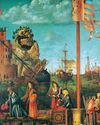
All About History UK
Medieval Pilgrimages
From penance to indulgence, everything you need to know about Christian holy journeys in Middle Ages Europe
9 mins
Issue 159
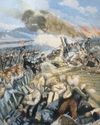
All About History UK
MUKDEN 1905
MUKDEN, MANCHURIA, CHINA 23 FEBRUARY - 10 MARCH 1905
11 mins
Issue 159
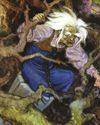
All About History UK
BEWARE BABA YAGA
Folklore expert Willow Winsham explains the history behind the mystery of this fearsome witch from Slavic legend
8 mins
Issue 159

All About History UK
ROYAL SCANDALS
THAT THREATENED THRONES
11 mins
Issue 159
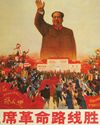
All About History UK
DISASTER PLAN
How a lethal mixture of arrogance, fear and blind faith condemned millions of Chinese to death
10 mins
Issue 159
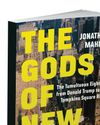
All About History UK
THE GODS OF NEW YORK
How a decade of turmoil shaped the Big Apple
1 mins
Issue 159
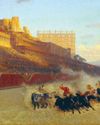
All About History UK
LOST ANCIENT SPORTS
Professor Peter J Miller discusses which ancient sporting traditions have continued into our modern world and which have been lost to time
4 mins
Issue 159
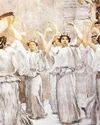
All About History UK
TERRACOTTA PANATHENAIC PRIZE AMPHORA
This ancient vase holding precious olive oil was gifted to the victors of an ancient athletic contest
1 mins
Issue 159

All About History UK
HENRY VIII HAD DIED YOUNG?
Without England's most notorious Tudor king, the country's religious and political history would've looked very different
6 mins
Issue 159

All About History UK
TITANIC MAKING AND BREAKING THE SHIP OF DREAMS
Uncover the inherent flaws and misplaced confidence that allowed a catastrophe to unfold
12 mins
Issue 159
Translate
Change font size
